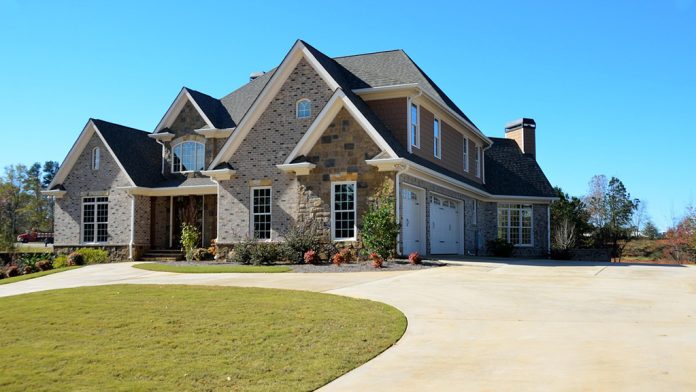When considering the best material for a home driveway, homeowners often find themselves choosing between asphalt and concrete. Both materials have their unique advantages, ranging from longevity to aesthetic appeal, and selecting the right one can significantly impact the overall value and function of your house. In this article, we’ll explore the key differences between asphalt and concrete driveways to help you make an informed decision that best suits your needs.
Durability and Lifespan
One of the critical factors in choosing between asphalt and concrete is understanding their differing lifespans. According to RSA Paving, a typical asphalt driveway can last anywhere from 15 to 30 years, provided it receives proper maintenance, such as regular sealing. Conversely, concrete driveways have a longer lifespan, generally ranging from 25 to 50 years, depending on the quality of construction and maintenance, as stated by The Spruce.
Concrete driveways are often celebrated for their durability and ability to withstand harsh weather conditions. Because of their composition, they resist damage better than asphalt, which means you could save on repair costs over time. However, asphalt does offer the benefit of being less prone to cracking due to its more flexible nature, which can be a crucial consideration for areas with fluctuating temperatures.
Homeowners need to evaluate the specific environmental conditions their driveway will face when deciding on a material. Regions with frequent freeze-thaw cycles might accelerate wear on concrete, while high-temperature areas might cause asphalt to soften. The choice should reflect the external challenges it will encounter, taking both lifespan and resilience into account.
Cost and Maintenance
Cost is always a significant factor for homeowners, and the initial expense of materials and installation varies between asphalt and concrete. Generally, asphalt is less expensive to install initially but requires frequent maintenance, such as sealing every few years to maintain its appearance and structural integrity. In contrast, concrete is relatively more expensive upfront but requires less maintenance over time, which can help balance the initial investment.
Over the lifespan of the driveway, routine sealing of an asphalt surface can accumulate sizable costs, which should be factored into the budget. Concrete maintenance, on the other hand, typically includes occasional cleaning and application of sealants, making it a potentially more economical choice in the long run. That being said, the choice between short-term affordability and long-term savings is a personal decision that should align with your financial plans for your house.
Both materials respond differently to repairs when damage does occur. Asphalt repairs tend to be simpler and less costly than concrete, addressing issues like cracks or potholes more efficiently. Thus, for those who prioritize ease of maintenance and lower immediate costs, asphalt may be preferable, while those willing to invest more initially opt for concrete due to fewer long-term concerns.
Curb Appeal and Home Value
Beyond practicality, curb appeal plays a crucial role in a home’s market value and desirability. A well-maintained driveway is a significant component of a home’s exterior, and choosing the right material can enhance its appeal. According to Econpapers, a home’s curb appeal significantly contributes to its overall market value, potentially accounting for about 7%.
Visually, concrete offers versatility with a range of finishes, colors, and textures to complement any house style. Its aesthetic options allow homeowners to achieve a personalized look, which could positively impact resale potential. Asphalt, though typically less customizable, provides a sleek, uniform appearance that some homeowners and prospective buyers might find equally appealing.
Ultimately, the choice between asphalt and concrete involves considering how much value you place on the appearance of your driveway. If enhancing the aesthetic appeal is an important aspect for you, concrete’s versatility gives you room for creativity. Meanwhile, those who prefer a classic, unobtrusive look might lean toward asphalt.
Environmental Impact
Modern homeowners also need to consider the environmental impact of their choices. Concrete production is energy-intensive and has a notable carbon footprint, which might be a concern for those who prioritize sustainability. Asphalt does involve petroleum byproducts, but advancements in recycling have made it a more environmentally friendly option over recent years.
Both materials have their pros and cons in terms of environmental impact. The use of permeable concrete and improved asphalt recycling methods represents steps toward mitigating these impacts. By evaluating the environmental policies and practices of contractors, homeowners can make decisions that align with their sustainability goals.
Analyzing the entire lifecycle of the driveway, from installation to eventual replacement, gives a comprehensive view of its environmental implications. Each material offers pathways to reduce its environmental footprint, and those who are eco-conscious should consider these options. Selecting a sustainable solution not only benefits individual properties but also contributes to broader environmental conservation efforts.
Deciding between asphalt and concrete for your home’s driveway requires a multifaceted approach, considering durability, cost, aesthetic appeal, and environmental factors. Asphalt offers a cost-effective solution with simpler repairs, while concrete promises longevity and aesthetic flexibility. As such, the best choice ultimately depends on aligning these considerations with your personal priorities and the specific conditions surrounding your house.
Take the time to evaluate how each option aligns with your property’s characteristics, including its climate and local neighborhood standards. Whether your priority lies with durability, cost efficiency, or visual impact, making the right choice can significantly enhance your home’s overall value and functionality. Weighing these factors carefully will ensure that your driveway investment meets your family’s needs for many years to come.
Both materials have much to offer, and the decision should reflect a balance of practical needs and lifestyle preferences. By understanding the pros and cons of each, you can make an informed decision that not only enhances the curb appeal and value of your home but also aligns with your budget and environmental considerations. Whatever your choice may be, a well-designed and maintained driveway is sure to enhance the comfort and appeal of your house.




